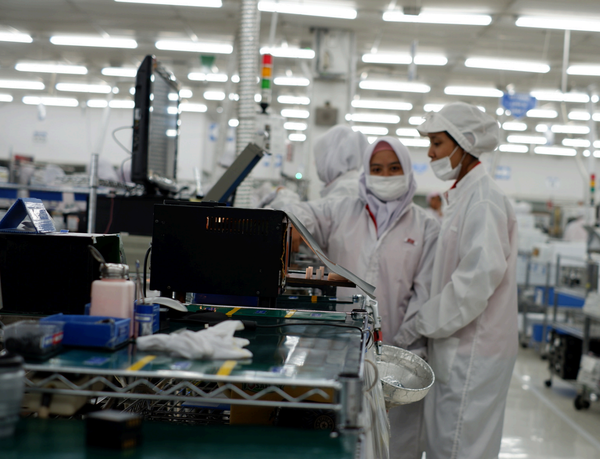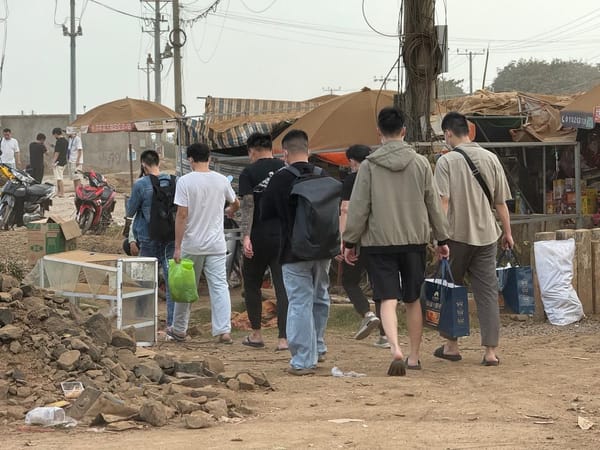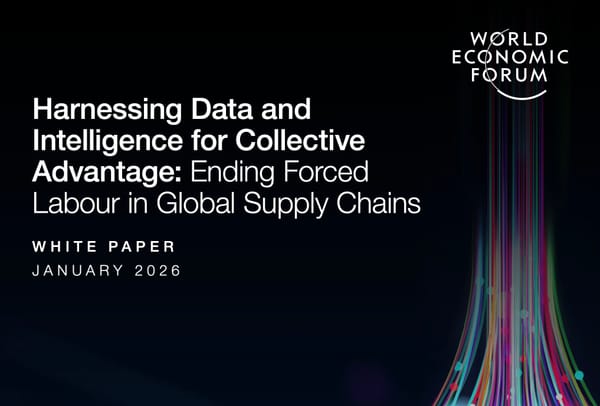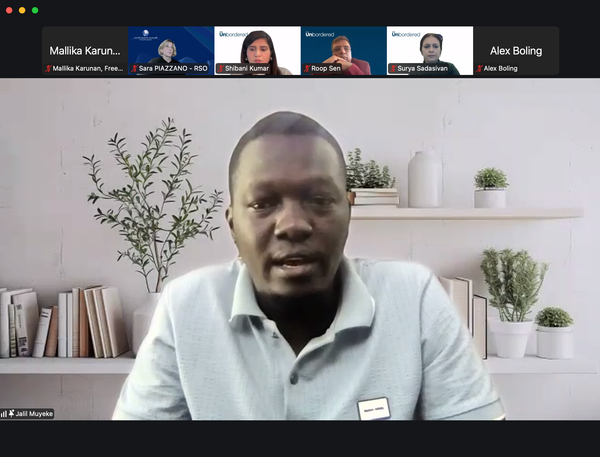The delayed U.S. TIP Report names Cambodia as a state sponsor of trafficking
The 2025 TIP Report highlights forced criminality and the state complicity that enables it, new data shows the impact of climate change on exploitation in Nepal, and courts increasingly hold companies accountable for supply chain abuses.
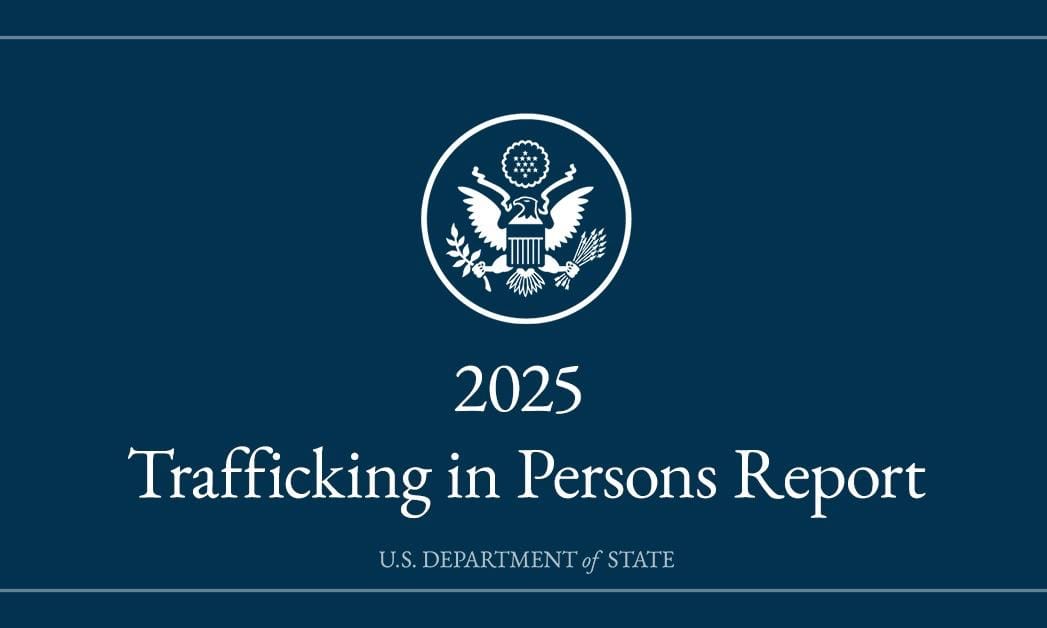
The U.S. Department of State published its Trafficking in Persons (TIP) Report yesterday, nearly three months after it was due to be delivered to Congress. Covering government actions worldwide from April 2024 through March 2025, the report highlights record numbers of labour trafficking convictions achieved through international cooperation, while cautioning that digital tools and state-sponsored trafficking are driving the crime’s ongoing evolution.
The 2025 report highlights the frequent challenge of forced criminality and documents the first use of Global Magnitsky sanctions for forced labour in online scams, signaling a stronger stance against officials who profit from exploitation. It further explicitly addresses the challenge of state complicity, in which government officials directly engage in, or fail to prosecute, trafficking crimes, identifying this phenomenon as a critical global threat.
Cambodia is newly named as one of the world’s 13 state sponsors of human trafficking – those with a documented “government policy or pattern” of the crime – placing it alongside countries such as Iran, North Korea and China. This new designation follows the publication earlier this year of a U.S. Government-funded report, authored by Jacob Sims and published by Humanity Research Consultancy, on the significant global security risks posed by the online fraud industry and the structural role of the Cambodian Government in sustaining it, protecting it, and enabling it to thrive.
As in previous years, the report stresses the importance of a victim-centered and trauma-informed approach, and urges governments to implement the non-punishment principle, which holds that victims should not be penalized for unlawful acts committed as a direct result of being trafficked. It also recommends that law enforcement and social services create clear pathways to care that are separate from criminal justice cooperation, so that victims feel safe seeking help.
Following on from last year’s report, which emphasized the growing role of technology in both facilitating exploitation and countering human trafficking, the 2025 publication notes that, while digital tools offer unprecedented potential for victim identification and law enforcement, traffickers are now weaponizing AI to automate victim grooming, create deepfake exploitation material, and run massive online scam operations.
The report also moves Brazil and South Africa to the “Tier 2 Watch List”, citing what it said were the failures of both countries to demonstrate enough progress on the issue, with fewer investigations and prosecutions. This puts both states at risk of U.S. sanctions if they do not demonstrate greater efforts on human trafficking. News outlets note that Donald Trump has accused South Africa, without evidence, of persecuting its white minority, launched a refugee program for white South Africans, and imposed steep tariffs on the country. He has also imposed tariffs on Brazil, alongside visa restrictions and financial sanctions, in response to the trial and conviction of his close ally, former President Jair Bolsonaro, they say.
The unprecedented delay in the publication of the 2025 TIP Report comes after the Trump administration slashed more than 70 per cent of the workforce at the State Department’s Office to Monitor and Combat Trafficking in Persons. Moreover, key initiatives for fighting human trafficking have been cut back in other key departments including the Department of Justice and Department of Labor, according to a Guardian investigation. In previous years, State Department officials have answered journalists’ questions on the report, but news outlets say that, this year, no one has yet been made available.
Here’s a roundup of other noteworthy news and initiatives:
Last week, U.S. Customs and Border Protection (CBP) issued a Withhold Release Order against Giant Manufacturing Co. Ltd., blocking imports of bicycles and parts from its Taiwan factories over alleged forced labour practices. Giant responded by reaffirming its commitment to human rights and citing its zero recruitment fee policy and improved worker housing, and announced plans to petition CBP to revoke the order.
This blog article discusses how courts in the UK and beyond are increasingly holding multinational companies accountable for labour abuses in their supply chains, giving migrant workers more avenues for justice. At the same time, it highlights continuing barriers such as weak local legal systems and SLAPP suits (Strategic Lawsuits Against Public Participation), calling for stronger due diligence laws and protections to make justice more accessible.
A new report by GoodWeave International and New ERA documents how climate change is contributing to child and forced labour in the carpet and brick industries of Nepal, where families facing floods, droughts, and crop failures often turn to hazardous work. Drawing on climate data and testimonies from more than 1,000 participants, the study calls for stronger worker protections, expanded social safety nets, and investments in climate resilience to prevent environmental shocks from driving labour exploitation.
La Strada International is hosting a webinar series on the three new forms of exploitation added to the EU Anti-Trafficking Directive: surrogacy, forced marriage, and illegal adoption. The October sessions will launch new research, feature expert panels, and address the legal and policy challenges of treating these practices as human trafficking, while offering recommendations for stronger prevention and protection.
UN Women has released a policy brief on the trafficking of women migrant workers, highlighting the ways in which systemic discrimination, restrictive migration policies, and poorly regulated labour markets drive exploitation. Focused on sectors such as domestic work, agriculture, hospitality, and garment production, the brief calls for gender-responsive, rights-based approaches to ensure safer migration pathways and stronger protections for women facing coercion, debt bondage, and abuse.
A recent blog post from the Human Rights Funders Network warns that human rights funding is collapsing just as global authoritarian threats are growing more coordinated, transnational, and repressive. It argues that philanthropy must adapt by breaking down silos, supporting activist-led initiatives, and embracing collective strategies such as the Better Preparedness Initiative and the Collective Action Assistance Fund to strengthen resilience and transnational cooperation in defense of civic space and human rights.
Freedom United is calling on the U.S. Department of Justice to release US$88 million in funds for trafficking survivor services. Without action, more than 3,000 survivors could lose access to lifesaving support.

